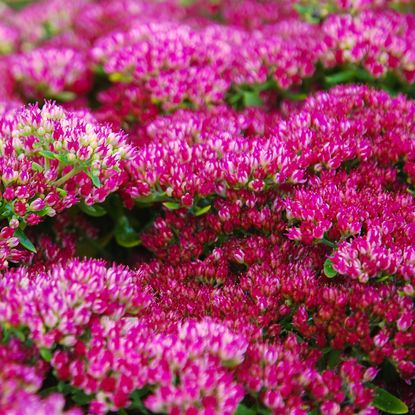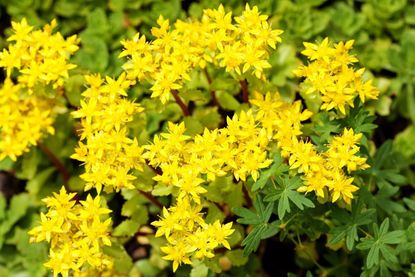Sedums
Hardy and adaptable, sedum plants are available in a huge variety of colors, forms and sizes. Sedums are succulent plants and most thrive in bright sunlight and poor, well-drained soil. Growing sedum plants is easy and, as long as a few very simple needs are met, these drought-tolerant perennials require very little attention. Read on to learn about caring for sedum plants.
-
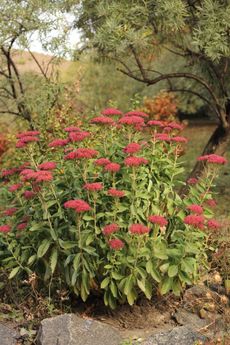
Autumn Joy Sedum Variety – Learn How To Grow Autumn Joy Plants
The Autumn Joy sedum variety has numerous seasons of appeal. This is an easy plant to grow and divide. Growing Autumn Joy sedums will enhance the garden while bestowing you with plenty more of these amazing plants over time. Learn more here.
By Bonnie L. Grant
-
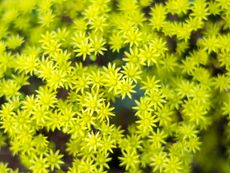
Planting Sedums - How To Grow Sedum
Few plants are more forgiving of hot sun and bad soil than sedum succulent plants. Lay it on the ground and it will take root - that's how easy it is to grow.
By Heather Rhoades
-
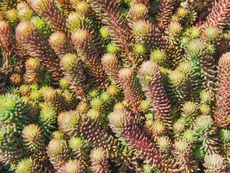
Angelina Sedum Plants: How To Care For Sedum ‘Angelina’ Cultivars
Are you looking for a low maintenance groundcover for a sandy bed or rocky slope? Sedum "Angelina" cultivars are excellent succulents for sites like these. Click this article for tips on growing Angelina stonecrop in the garden.
By Darcy Larum
-
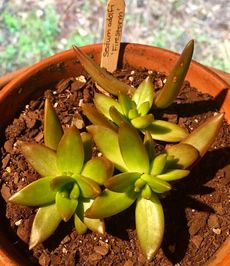
Firestorm Sedum Care: Tips On Growing A Firestorm Sedum Plant
Do you want to liven up your windowsill or garden border? Are you looking for low, mounding succulents that have a strong punch of bright color? Sedum ‘Firestorm’ is a variety bred specifically for its vibrant red margins. Click here to learn more about this plant.
By Liz Baessler
-
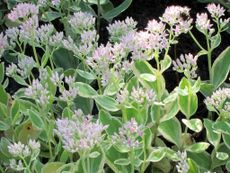
Sedum ‘Frosty Morn’ Plants: Growing Frosty Morn Sedums In The Garden
One of the most startling sedum plants available is Frosty Morn. The plant is a succulent with vividly detailed cream markings on the leaves and spectacular flowers. Click this article for some tips on how to grow sedum "Frosty Morn" plants in the garden.
By Bonnie L. Grant
-
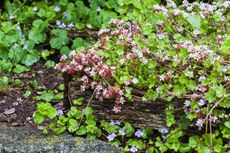
English Stonecrop Care: Tips For Growing English Stonecrop
English stonecrop plants are common nursery plants and make excellent fillers in containers and beds. There are very few tricks on how to grow English stonecrop sedum and the information in this article will help.
By Bonnie L. Grant
-
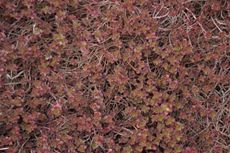
Dragon’s Blood Stonecrop: How To Grow Dragon’s Blood Sedum Plants
Dragon's Blood stonecrop is an exciting and attractive ground cover, spreading quickly in the sunny landscape and growing happily in many areas of the U.S. Its leaves fill in during the summer to become a deep burgundy by autumn. Learn more about this plant here.
By Becca Badgett
-
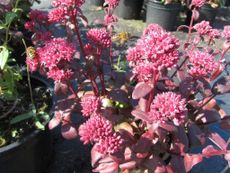
What Is Sedum ‘Purple Emperor’ – Tips For Purple Emperor Care In Gardens
The Purple Emperor sedum is a tough but beautiful perennial plant that produces stunning, deep purple leaves and bunches of tiny, light pink flowers. It's a great choice for cut flowers and garden borders alike. Learn how to grow Purple Emperor in this article.
By Liz Baessler
-
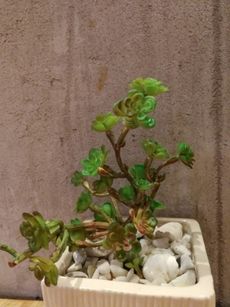
Growing Potted Tree Stonecrop: Sedum Frutescens And Sedum Dendroideum Care
If you're looking for a low care succulent to bring inside for the winter and locate on the floor, consider choosing a Sedum tree.
By Becca Badgett
-
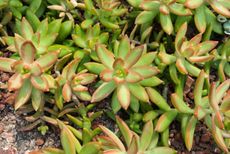
Coppertone Stonecrop Info: Caring For A Coppertone Succulent Plant
Coppertone sedum plants have outstanding color and form plus amazingly forgiving cultivation requirements. USDA zones 10-11 are suitable for growing Coppertone succulents, but they make excellent houseplants too. Click here for more Coppertone stonecrop info.
By Bonnie L. Grant
-
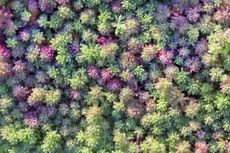
Creeping Sedum Info: Learn About Growing Sedum As A Groundcover
If you have a hot, dry, sunny location, groundcover sedum is a perfect match. Using sedum as a groundcover keeps other plant roots cool, conserves moisture, staves off erosion and establishes very rapidly. Click here for creeping sedum info.
By Bonnie L. Grant
-
Sedum 'Touchdown Flame' Info – Tips For Growing A Touchdown Flame Plant
Sedum 'Touchdown Flame' is an extraordinary plant with interest from those first small leaves well into winter with the naturally dried flower heads. The plant was introduced in 2013 and has become a gardener's favorite ever since. Learn more in this article.
By Bonnie L. Grant
-
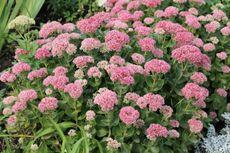
Meteor Stonecrop Care: Tips For Growing Meteor Sedums In The Garden
An herbaceous perennial with fleshy, grayish-green foliage and long-lasting, star-shaped flowers, Meteor sedum plants look great in containers, beds, borders, mass plantings, or rock gardens. Interested in learning how to grow Meteor stonecrop? Click here for helpful tips!
By Mary H. Dyer
-
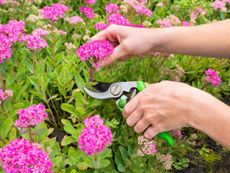
Sedum Plant Pruning: Tips On Cutting Back Sedum Plants
If you require a very tidy appearance, sedum plant pruning can control errant growth and enforce thicker plants in some cases. It can't hurt the plant but knowing when to prune sedum plants can help preserve the starry flowers. Learn more here.
By Bonnie L. Grant
-
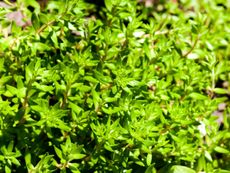
Stringy Sedum Groundcover: Learn About Stringy Stonecrop In Gardens
Stringy stonecrop sedum is a low-growing, matting or trailing perennial with small, fleshy leaves. In mild climates, stringy stonecrop stays green year-round. Stingy stonecrop is suitable for growing in USDA plant hardiness zones 4 through 9. Click here to learn more.
By Mary H. Dyer
-
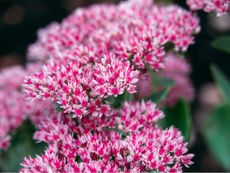
Learn About Vera Jameson Plants: How To Grow A Vera Jameson Plant
A member of the stonecrop group of plants, the Vera Jameson stonecrop is a striking plant with burgundy stems and dusty pink autumn flowers. This plant adds a unique color to beds and is easy to grow. Click this article to learn more about growing this spectacular sedum.
By Mary Ellen Ellis
-
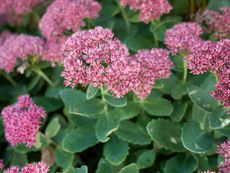
Help, My Sedums Are Too Heavy: Tips For Supporting And Pruning Sedum
The larger sedum varieties, such as Autumn Joy, produce huge flower heads. By the end of the season, you may find sedums falling over from the weight. Learn how to fix that in this article.
By Bonnie L. Grant
